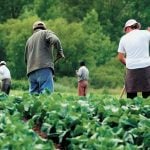The Canadian Farm Business Management Council is on the lookout for 30 good men and women to lead agriculture into the new century.
In co-operation with the University of Saskatchewan, the council is inviting applications for a first-ever national agricultural leadership program.
It will cost $5,000, require the winners to be away from their farms for long stretches of time and take them across Canada, to the United States and Mexico.
They will have access to advanced computer communication training and programs and must have a computer and internet access. At the end, they will receive a University of Saskatchewan extension certificate.
Read Also

Alberta may eliminate marked fuel
Alberta may soon stop selling dyed gasoline and diesel.
More importantly, says council chair and Wainwright, Alta. dairy farmer Terry Murray, the graduates will represent a new generation of leaders for an industry that suffers from “a leadership gap.”
Murray said Canada has spent too little time training future agriculture leaders. There are several provincial leadership programs but no national effort.
Enthusiastic talent
“We have some very talented leaders now but our backup is thin,” he said. “We need up-and-comers to fill their shoes as some of the older leaders get tired and are willing to step back.”
Murray said the program, dubbed Canadian Agriculture Lifetime Leadership, will expose the 30 chosen to issues ranging from how to deal with government to international trade, environmental issues and rural/urban tensions.
The 30 people in the program will be selected by July. Applications must be made to the Ottawa-based council by May 15.
Murray said the top applicant from each province will be given a spot and the remaining places will be filled by a selection committee that looks for different commodities, experiences, ages and interests.
“We want a mixed group,” said Murray. There is no age limit although suggested criteria propose that the applicants must be “old enough to have demonstrated leadership commitment and potential but young enough to ensure a return on investment.”
He said changes facing the agriculture industry require strong leadership. European countries and the United States are far ahead in offering such programs.
He said the result was evident during 1993 world trade negotiations when American officials were receiving advice from a more experienced group of industry advisers than were Canadian trade officials.














